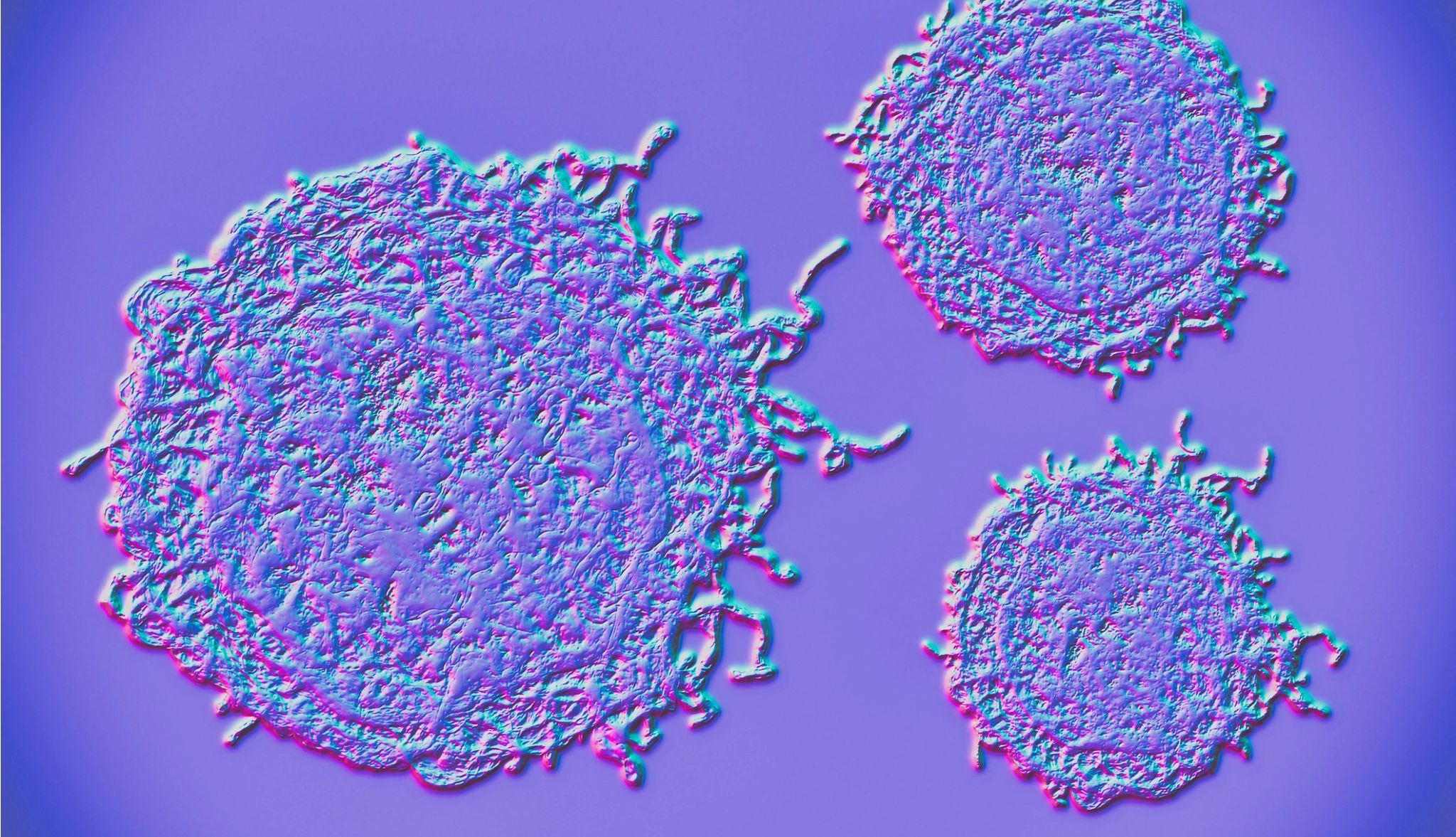Gen xers face higher cancer risks
Gen xers face higher cancer risks"
- Select a language for the TTS:
- UK English Female
- UK English Male
- US English Female
- US English Male
- Australian Female
- Australian Male
- Language selected: (auto detect) - EN
Play all audios:
Cancer trends in the U.S. are shifting, and accumulating research paints a concerning picture for America’s “middle child generation” and those that follow. Members of Generation X — adults
born between 1965 and 1980 — are more likely to be diagnosed with cancer than the generations that came before them, researchers from the National Cancer Institute found. Published in June
in the journal _JAMA Network Open_, the study looked at data from 3.8 million individuals in the U.S. diagnosed with invasive cancer from 1992 to 2018. Using modeling, the researchers found
that as Gen X adults hit 60, they will be more likely to get cancer than baby boomers were at age 60. A study published July 31 in _The Lancet Public Health_ found that Gen Xers and
millennials have a higher risk of developing 17 of 34 types of cancers compared with older generations, including nine cancers that had been declining in older adults. 17 CANCERS ON THE RISE
IN YOUNGER GENERATIONS According to a study published in _The Lancet Public Health_, researchers found that compared with older generations, Generation X and millennials in the U.S.
have a higher risk of developing these cancers: * Colorectum * Uterine corpus * Gallbladder * Kidney and renal pelvis * Pancreas * Myeloma * Noncardia gastric, a type of stomach cancer *
Leukemia * Testis * Cardia gastric, a type of stomach cancer * Small intestine * Estrogen receptor-positive breast * Ovary * Liver (in women) * Non-HPV-associated oral and pharynx (in women)
* Anus (in men) * Kaposi sarcoma, a type of blood cancer (in men) Strikingly, the researchers, led by a team from the American Cancer Society, found that adults born around 1990 are two to
three times more likely to develop pancreatic, kidney, liver (in women) and small intestinal cancers than adults born around 1955. Younger adults are also seeing an increase in mortality for
five different types of cancer, including liver (in women), uterine, gallbladder, testicular and colorectal cancers, the study found. “These findings add to growing evidence of increased
cancer risk in post-baby boomer generations,” Hyuna Sung, coauthor of the _Lancet_ study and a senior principal scientist of surveillance and health equity science at the American Cancer
Society, said in a statement. WHAT’S DRIVING THE CANCER INCREASE? Even though we’re recognizing cancer trends associated with birth years, “we don’t yet have a clear explanation for why
these rates are rising,” Sung says. That’s not to say there aren’t clues, and many cancer experts point to rising obesity rates and environmental exposures as two likely possibilities. 1.
RISING OBESITY RATES. Underlying genetics can contribute to cancer risk, explains Sanjay Shete, a genetic epidemiologist at the University of Texas MD Anderson Cancer Center in Houston.
“But I don’t think [that’s what] has changed” in recent decades, he says. “What has definitely changed is our lack of physical activity, the increased obesity rates and also availability of
fast foods that were not so much frequently available to the baby boomers and the silent generation. And I think that’s probably the primary driver of why we’re observing increased cancer
incidence in the younger population.” Obesity rates in the U.S. have soared in recent decades, rising from around 13 percent in 1980 to 42 percent by 2020. Less than a quarter of U.S.
adults get the recommended amount of physical activity, data from the Centers for Disease Control and Prevention (CDC) shows. What does this have to do with cancer? According to the National
Cancer Institute, there is “strong evidence” that higher levels of physical activity are linked to lower cancer risks. And the CDC has linked 13 types of cancer to obesity: * Breast cancer
(in women) * Colon and rectal cancer * Endometrial cancer (also called uterine cancer) * Esophagus cancer * Gallbladder cancer * Stomach cancer * Kidney cancer * Liver cancer * Ovarian
cancer * Pancreatic cancer * Thyroid cancer * Meningioma (a type of brain cancer) * Multiple myeloma
Trending News
Ex-norway pm meets top hurriyat leaders in j&k, sri sri ravishankar’s art of living ‘facilitates’ meetEx-Norway PM Kjell Magne Bondevik with top Hurriyat leader in Jammu and Kashmir  |  Photo Credit:&nb...
N.J. Moves to Take Over Another DistrictShare article Remove Save to favorites Save to favorites Print Email Facebook LinkedIn Twitter Copy URL Nearly 25 years ...
Yong Zhao in Conversation: Education Should Liberate, Not Indoctrinate (Opinion)Share article Remove Save to favorites Save to favorites Print Email Facebook LinkedIn Twitter Copy URL Anthony Cody Ant...
Schools for Nannies Meet Pressing Needs of Modern MothersSAN DIEGO — There is a poster at the school of a baby in a packing crate like a computer comes in. The poster reads, “T...
PM Modi must apologise for opposing GST for 7 years: Pritviraj Chavanमराठी हिंदी Times Now Follow us on : Now Available On News Home India Business Viral News Health Education Sport...
Latests News
Gen xers face higher cancer risksCancer trends in the U.S. are shifting, and accumulating research paints a concerning picture for America’s “middle chil...
Orange county prep football : bolsa grande runs to victory, 33-23 : lepule, lui each score twice against long beach wilsonRunning backs Ricky Lepule and Travon Lui combined to score four touchdowns Friday as Bolsa Grande High School spoiled t...
Now, chennai beaches are free from toxic oil sludgeIn Chennai, the beaches are now almost nearly free from the toxic oil sludge that had brought the costal land to a near ...
Rowland heights : all-year schools studiedThe Rowland Unified School District board has adopted a resolution to consider year-round scheduling as a possible solut...
Tasmanian Craft Fair Deloraine 2016 | photosAdPhotosPhotosNews HomeNewsSportCommunityTributes & FuneralsClassifiedsExplore TravelEntertainmentLifestyleRecommendedQu...
